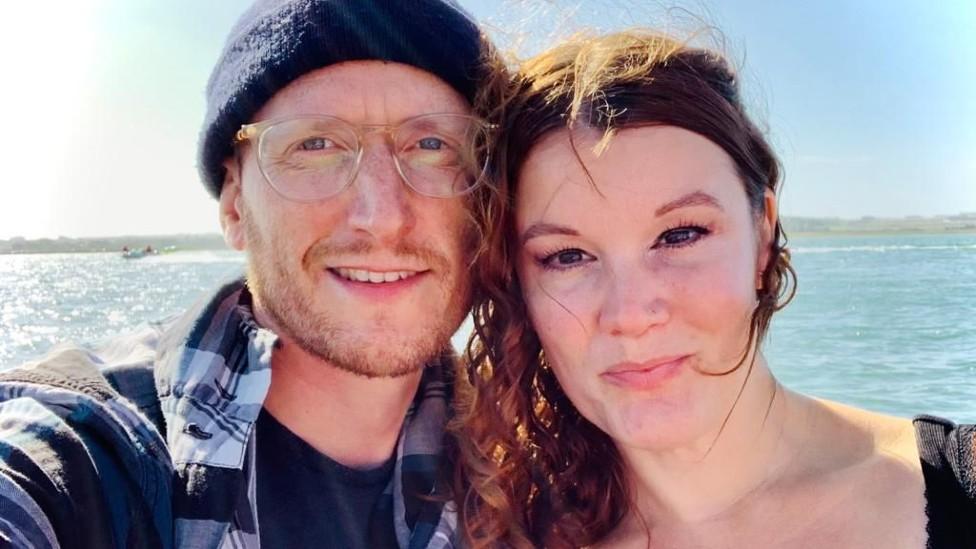Covid: Being alone in pregnancy due to hospital rules
- Published
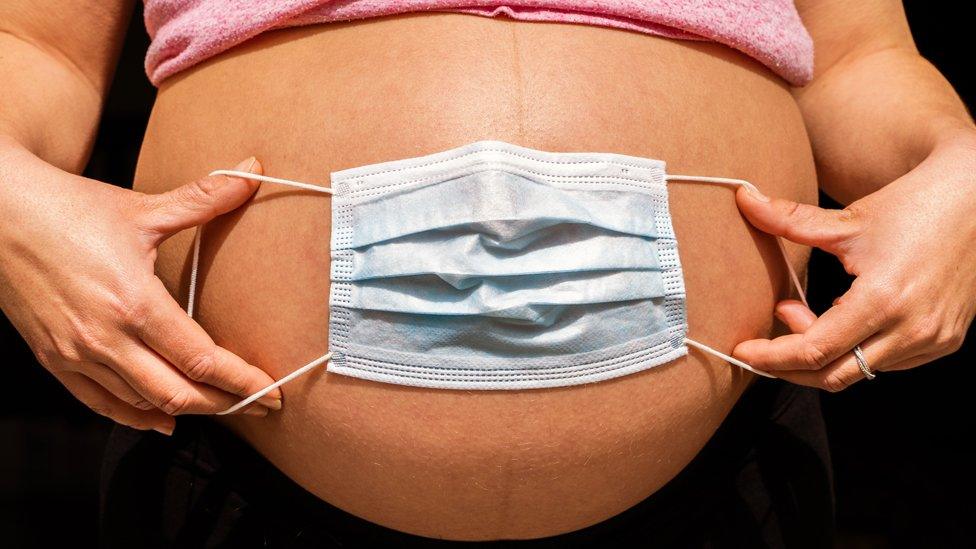
Pregnancy can be hard enough without a pandemic to complicate things. But when Covid rules meant some expectant mothers faced appointments, scans or delivery alone, the experience could be traumatic. What follows are the accounts of two women, including one who was on her own when she was given the worst news.
When the old normal was replaced by the new normal, a range of rules were introduced for the population to follow.
The NHS - facing the brunt of Covid-19, of course - was no exception. And the bid to uphold safety and limit transmission impacted on all aspects of hospital life, including maternity care.
From the first England lockdown in March, individual hospitals across the nation set their own rules on how mothers were accompanied, meaning some - but not all - went through the process alone.
By December, though, the NHS had issued guidance saying pregnant women should be allowed to have one person alongside them during scans, appointments and birth. It added the chosen individual, whether partner, family member or friend, should be viewed by hospitals as "an integral part" of the woman's care, rather than a mere visitor.
The guidelines advise that all trusts should facilitate this, while keeping the risk of Covid transmissions as low as possible. But they remain only guidelines.
So, what of those who have faced key steps of their pregnancy alone? How do they feel several months later, when the NHS steer might have meant a different experience?

'You need support'
Abi Higgins, 32, was about five weeks pregnant with her second child when she went into hospital for a scan in May. She knew something was wrong, having previously suffered a miscarriage.
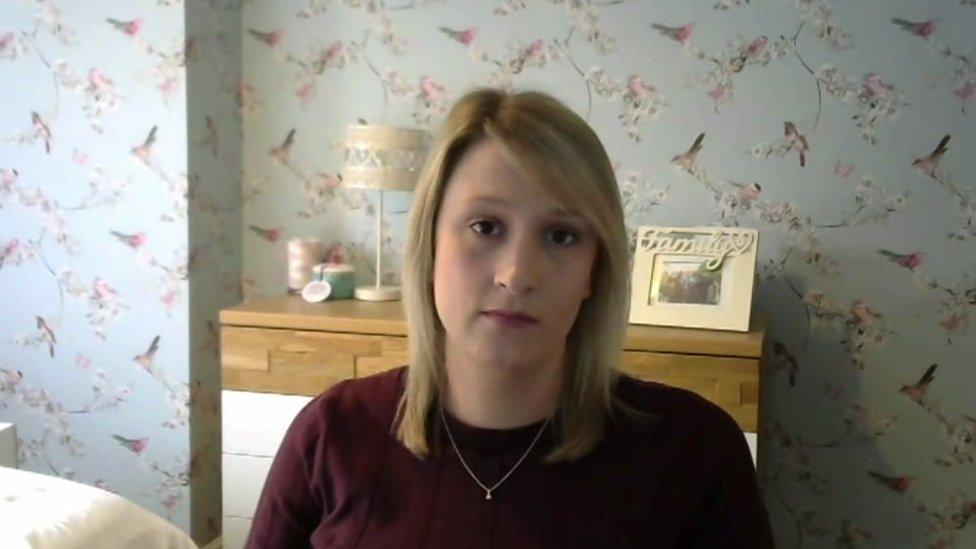
Abi Higgins: 'You shouldn't have to be told you've lost your baby on your own'
She said: "The first time round I had my partner with me so that was a really big support, but obviously this time round he wasn't allowed to be with me, so he had to sit in the car with our son and wait for the news."
The news was awful.
"It was one of the hardest things I've had to do. I feel emotional thinking about it - you shouldn't have to be told you've lost your baby on your own."
Ms Higgins, from Bromsgrove, Worcestershire, is now expecting a baby boy in April, but the memory of last year stays with her.
"It's just not very fair because you need support. When I was in the scan, I did get really upset.
"The lady put her hand on my knee and said 'this is a horrible situation' but she said 'don't ever give up'; she said 'you can get through this'."

'Your mind plays tricks'
Loren Pashby, 20, from Staffordshire, is expecting her first child later this year but has faced emergency scans alone.
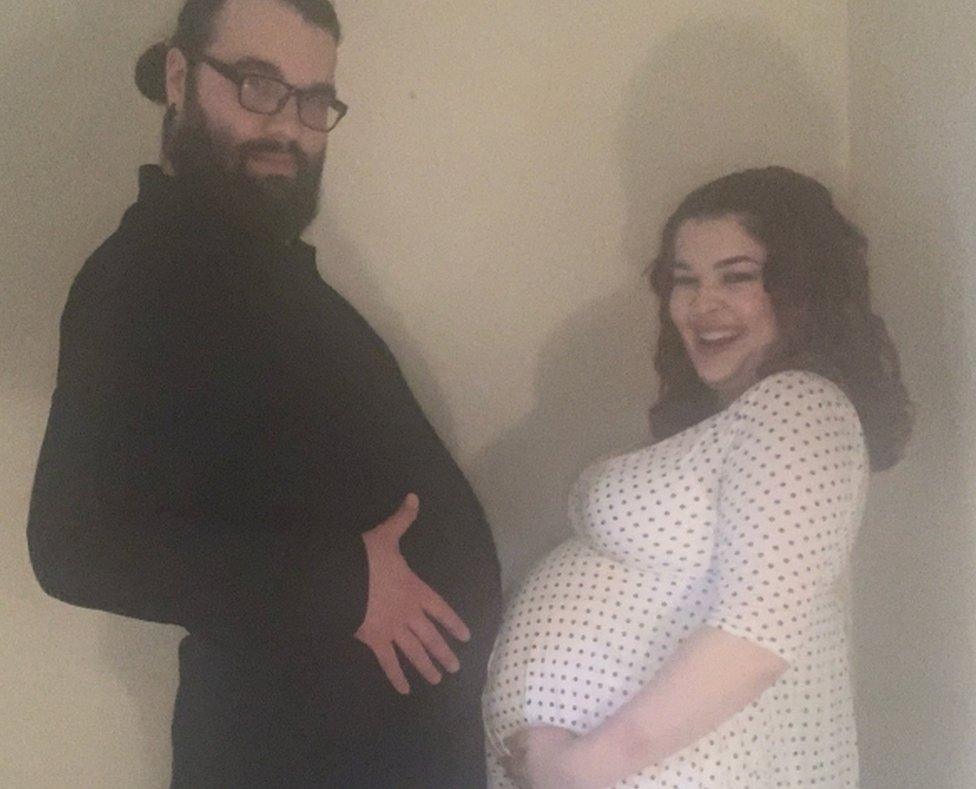
Loren Pashby and Pedro Fontan are expecting a baby girl later this year
She said: "You're in a cubicle which is closed off, you can't see anyone, you can't talk to anyone and your mind plays tricks on you. You sit there and you think the worst."
After previously suffering an early pregnancy loss, she said her 12-week scan was "really nerve-wracking".
"I've got no one in there to sit with me while I wait and it does trigger the anxiety a lot."

What do dads say?
Ms Pashby's partner, Pedro Fontan, 26, said: "There's been a few times I've been in the car park or at home, just waiting for any updates, or waiting to hear anything, and not being able to hold Loren's hand and tell her it's going to be ok in person, just having to text or call - it's nerve-wracking really.
"We've had a few scares and it's just the not knowing, or the not knowing straight away, and having to wait for a phone call. It's devastating really, because you don't know what's going on and you think about the worst."

What do hospitals say?
While new guidance was issued in December, it is still up to individual trusts as to how much of it is implemented, so experiences for women and partners can differ across England.
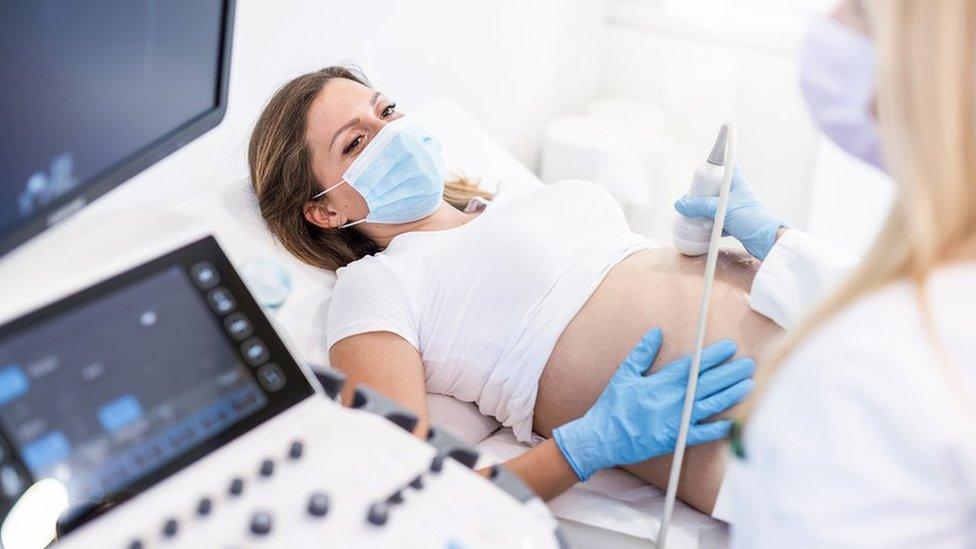
Around the West Midlands, where the women above were patients, there remains a mixed picture of protocol between the many trusts.
Some allow women to take a partner to all appointments, some to only one scan, and some to no appointments at all.
Michelle Rhodes, chief nurse at University Hospitals of North Midlands NHS Trust, which provided care to Ms Pashby, said: "We have reinstated visiting to some areas which also included the reintroduction of partners attending certain scans as part of their maternity care."
She said the trust was looking into safely implementing rapid testing for support partners.
Worcestershire Acute Hospitals NHS Trust, which provided Ms Higgins's care, has been approached for comment.
For information and support on issues in this article, visit BBC Action Line.

Follow BBC West Midlands on Facebook, external, Twitter, external and Instagram, external. Send your story ideas to: newsonline.westmidlands@bbc.co.uk , external
- Published16 December 2020
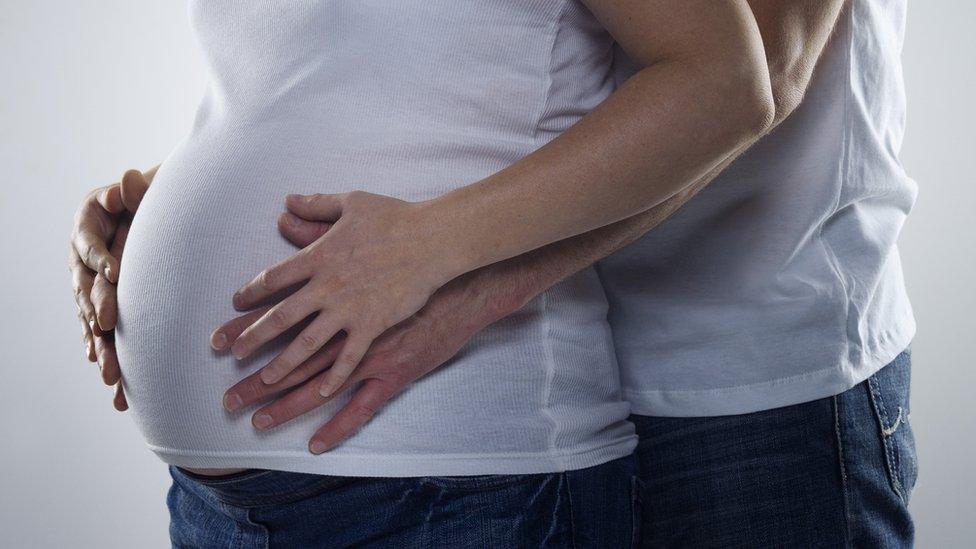
- Published27 November 2020
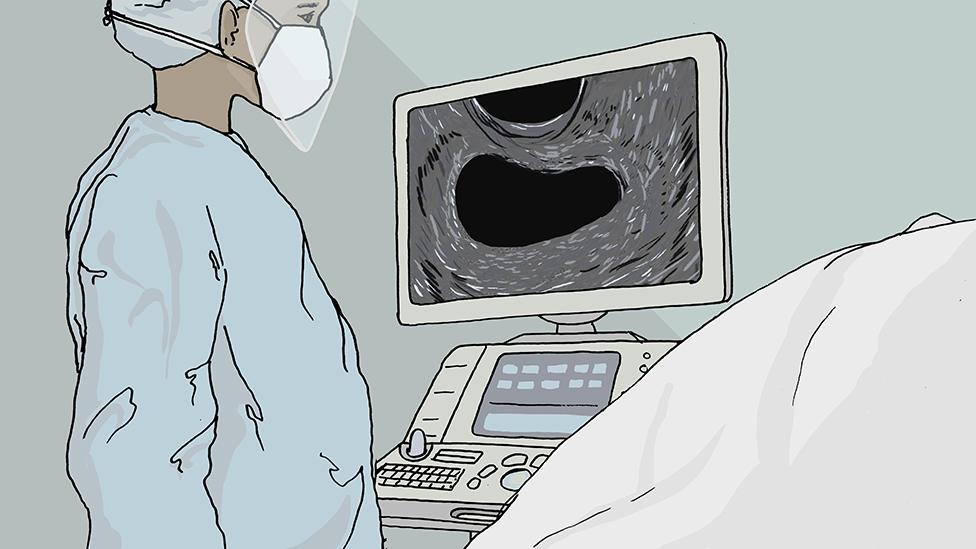
- Published19 November 2020
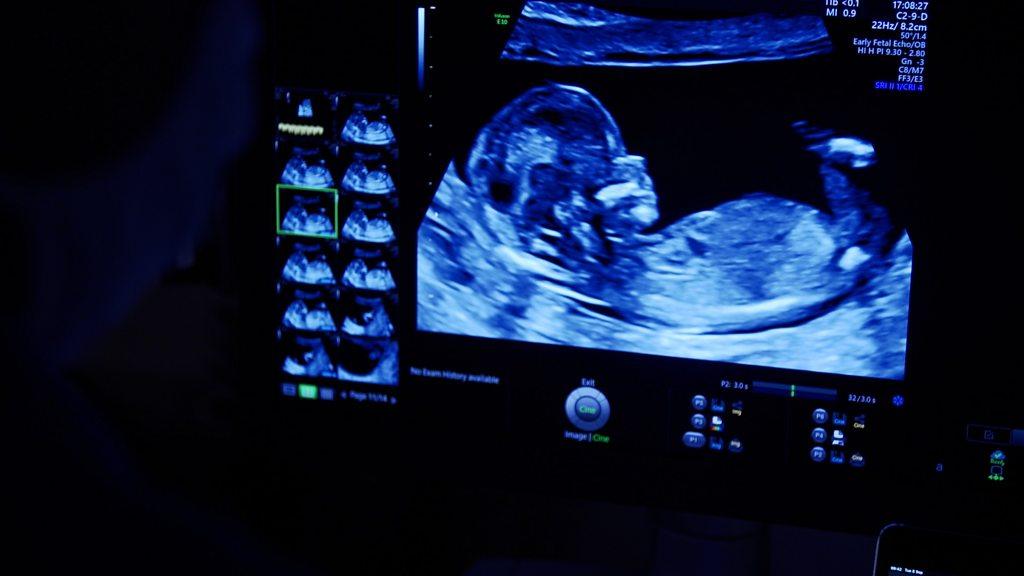
- Published11 September 2020
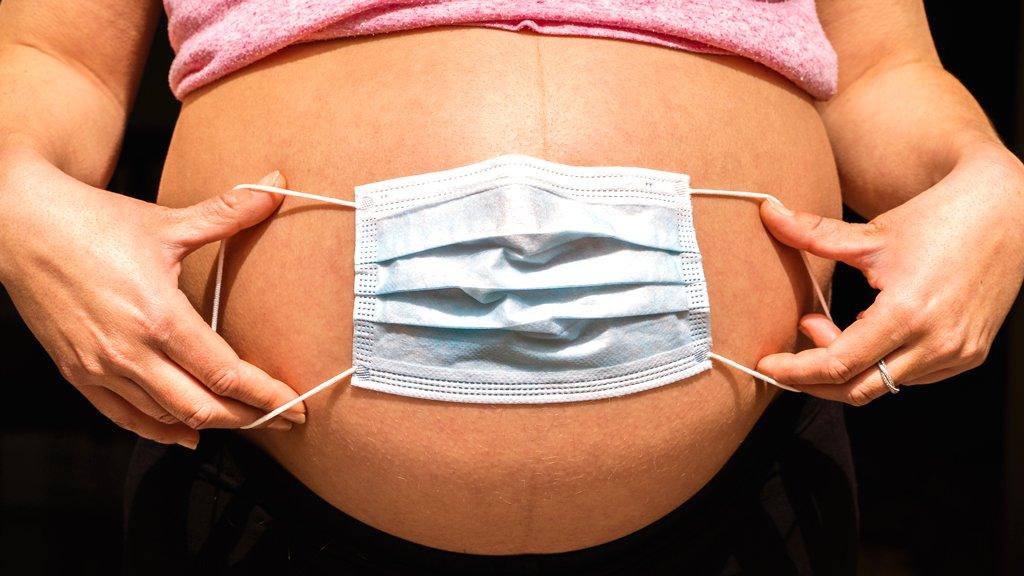
- Published4 September 2020
